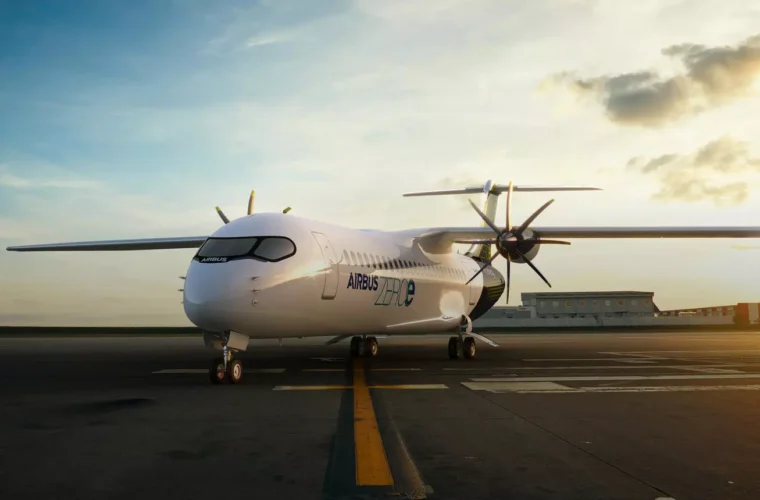Hydrogen startups at the forefront – the world’s first accelerator program
“Water is the coal of the future.” That’s how French author Jules Verne summed it up nearly 150 years ago. Over the past few years, there has been a growing conviction that hydrogen will play a significant role in the decarbonisation of the energy system. Of course, hydrogen alone won’t stop climate change. To ensure a successful energy transition, we need the wide-scale use of renewables and a grid expansion to deliver renewable energy to consumer areas.
Hydrogen is seen as a vital component in achieving net-zero emissions economies. At this point, however, hydrogen is limited to a few selected industrial applications and is more expensive than other fossil fuel alternatives. Achieving the ambitious goals set for hydrogen in the various strategies will require many energy industry players – private sector, government, regulators, and consumer groups – to work together to promote the necessary policies and behaviors.
Nevertheless, the global hydrogen market is developing at an accelerating pace, and for a good reason. Hyaccelerator is aiming at helping this process by supporting startups in the field. We asked Hyaccelerator’s Innovation Manager, Luca Pagani, about how Hyaccelerator work and its mission.
What is Hyaccelerator? Could you tell us some details about the program?
HyAccelerator is the world’s first corporate accelerator dedicated to innovative hydrogen startups. We launched this program last October as a part of our Hydrogen Innovation Center, with which we aim to develop a global network of research and innovation with the top-notch hydrogen universities and players of the ecosystem.
Who is behind the initiative?
The Hydrogen Business Unit at Snam, our CEO Marco Alverà established in 2019, drives the company’s vision and commitment to hydrogen. The Business Unit is led by Cosma Panzacchi, and within the Business Unit, the technical and R&D Team is led by Pere Margalef (formerly Fuel Cell Energy). The Innovation Team is led by Luca Pagani, who has experience driving global innovation and transformation programs in the energy sector.
What is Snam’s general sustainability strategy?
We think that as Snam we have the role of system integrators, and it’s 80 years since we operate in direct contact with the local communities to connect and create opportunities to bring energy to the Italian ecosystem. In this regard, we feel the responsibility to continue driving the energy transition by investing in new technologies and ensuring the safety and reliability of the infrastructure we manage.
What is Snam’s innovation startup, and what role does Hyaccelerator play in it?
We aim to identify the best startups active in disruptive technologies for the hydrogen economy. Through the HyAccelerator, we will support them in speeding up their solution’s commercial and technological validation and their go-to-market.

Why is hydrogen the main focus area?
Because we think that hydrogen has an enormous potentiality for the decarbonization targets: first of all because it can be produced without CO2 emissions (the so-called green hydrogen), and second because it can be used as a vector to transport and storage energy as well as can be used directly as a feedstock in many industries third because can be transported within the existing infrastructure – which of course for us is incredibly relevant.
Which part of the supply chain are you focusing on? What kind of companies are you mainly looking for within the framework of the accelerator program?
For the time being, we are open to applications of startups active along the entire value chain for hydrogen as we want to map the current innovation ecosystem of the innovative startups on a global scale.
How would you describe a successful startup from your point of view? What startups/ideas are generally regarded as successful?
Technology has to be tested and almost validated. The business model should be reliable, and of course, a lot makes the feeling on the Team behind the startup: we are looking for entrepreneurs we would love to work with and that share our commitment to hydrogen and the energy transition.
What is the process of the accelerator program, and why is it attractive for startups? What can they gain?
We will launch a call for startups yearly to collect applications on different challenges. We will then go through a process fully managed by our internal Innovation team to select around 3 or 4 startups per year. These will enter our six months Acceleration program – the real core of the HyAccelerator initiative – during which we will support the startups with some cash and perks such as mentoring, access to our R&D network, and co-development of brand new value propositions, and/or technical solutions.
What national and international targets are considered to be met by such startups?
It depends from time to time, and we design a custom acceleration program for each startup that we accelerate. The common target is the design of a First Industrial Deployment analysis between Snam and the startup itself.
What is Snaminnova, and what is the platform about?
As Snam we were already active in innovation and R&D since ever. Snaminnova it’s our company program for open innovation, which has already launched during the last years both call4 startups and call4ideas, the latter dedicated to our colleagues.
Snaminnova is not dedicated to hydrogen only but, of course, to all the Snam businesses and guided our HyAccelerator. We act as a unique Team, leveraging our mutual competencies.
What are the plans for both SNAM and the HyAccelerator program?
In the short term, to help the startups that we just selected from our first HyAccelerator Challenge reach the next step in their journey, which we think will be side-by-side with Snam.
In general, terms, to make the hydrogen revolution reality! Make it H2appen!



